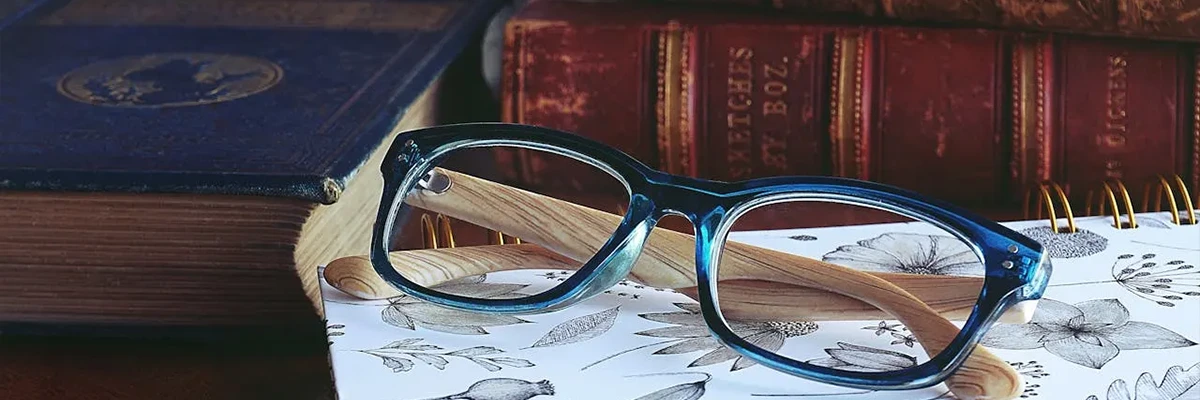
Why do we still read them?
This is a question that echoes through classrooms and book clubs. Why do we bother with books written 50, 100, or 200 years ago, by authors who are long dead? The world has changed. We have the internet. We have immediate, global communication. We have new problems, new technologies, new ways of living.
The standard answer is boring. We are told to read them because they are “important,” a kind of cultural vegetable we must consume to be considered educated. We read them for “the prose,” or for “historical context.”
This view is not just boring; it’s wrong. It reduces classic literature to a museum exhibit. A dusty relic.
The truth is, we don’t read these books to look at the past. We read them because they are terrifyingly accurate descriptions of our present.
Classic literature remains relevant for one primary reason: They ask uncomfortable questions that we still don’t have answers to.
A great classic is not a history lesson; it is a diagnostic tool. It is a mirror. The settings may be archaic (gas lamps, horse-drawn carriages, strange social rules), but the human core is unchanged. These books have survived because they managed to isolate a fundamental, unresolved conflict in the human condition. They are not stories; they are unsolved problems.
We will not find easy answers in these pages. We will not find comfort.
Instead, we find our own anxieties, our own hypocrisies, and our own deepest fears, articulated with a clarity that we often cannot muster ourselves. We can prove this by looking at four of the most persistent “unsolved problems” in modern literature.
The Twin Nightmares: “1984” and “Brave New World”
When we think of why classic literature remains relevant, our minds almost immediately go to dystopia. No two books have defined our anxieties about the future more than George Orwell’s “1984” and Aldous Huxley’s “Brave New World.” They are often lumped together, but they are not the same.
They are two opposite, competing poles of our modern anxiety. They are the twin questions of our age: Will we be controlled by what we hate, or by what we love?
“1984” (George Orwell, 1949)
Orwell’s masterpiece is a book about control through pain. It presents a future of total surveillance (the telescreen), perpetual war, and the systematic, state-enforced destruction of objective reality. The Party does not care about your happiness. It cares only about power. Pure, unadulterated power.
The uncomfortable question “1984” poses is this: What happens to truth when a single entity has the absolute power to erase and rewrite it?

The novel’s protagonist, Winston Smith, works at the Ministry of Truth. His job is to literally rewrite history, altering old news articles to match the Party’s current political needs. What was true yesterday is false today. What is true today will be false tomorrow. The Party’s slogan, “Who controls the past controls the future: who controls the present controls the past,” is the thesis statement.
Orwell’s genius was in creating the language for this horror. “Newspeak” is language designed to make rebellious thoughts impossible. “Doublethink” is the ability to hold two contradictory beliefs at once and accept both.
We are living in this. When we hear talk of “alternative facts” or watch a political figure deny something they were recorded saying, we are watching Doublethink in action. When we see algorithm-driven “fake news” spread faster than reality, we are seeing a decentralized Ministry of Truth.
The book’s terrifying conclusion is not just that the state will torture you. The goal is far worse. The goal of Room 101 is not to make you say 2+2=5. The goal is to make you believe it. It is the annihilation of the individual self.
Orwell’s question remains unsolved. In an age of digital surveillance, deepfakes, and rampant disinformation, his book is not a prophecy. It is a user manual for our current reality.
“Brave New World” (Aldous Huxley, 1932)

If Orwell feared control by pain, Huxley feared control by pleasure.
Huxley’s “Brave New World” is a dystopia that looks like a utopia. There is no war, no poverty, no disease, no sadness. Everyone is beautiful, healthy, and perpetually happy.
The catch? There is also no art, no science, no family, no love, no God, and no meaning.
This society is not kept in line by torture. It is kept in line by genetic engineering, constant social conditioning, and a powerful happiness-drug called “Soma.” If you ever feel a moment of sadness or a flicker of a difficult thought, you simply take a “Soma holiday.”
Huxley’s uncomfortable question is, in many ways, more terrifying than Orwell’s: Is a life of perfect, shallow happiness and zero pain preferable to a life of freedom, real emotion, and profound suffering?
The book’s “hero,” John the Savage, is the only person who can see the horror of this “perfect” world. He is brought from a reservation into this new London, and he is repulsed. He demands the right to be unhappy. He demands the right to feel pain, to read Shakespeare, to believe in God, and to grow old.
The World Controller, Mustapha Mond, is one of literature’s greatest “villains” because he is so reasonable. He agrees with John. He explains that art, religion, and freedom were all sacrificed for stability. Happiness is the new god, and it has made humanity obsolete.
We are not living in Orwell’s world. We are living in Huxley’s.
We are not forced to read propaganda; we choose to scroll through endless feeds of distracting, numbing content. We are not given Soma by the state; we pursue it ourselves, through binge-watching, through social media, through any number of addictions designed to keep us from the difficult silence of being alone with our own thoughts.
Huxley’s question is no longer hypothetical. Are we, right now, trading our humanity for comfort?
The Internal Jungle: “Heart of Darkness” (Joseph Conrad, 1899)

This novel, a short but impossibly dense psychological dive, is older than the dystopias, but it asks a question that is even more fundamental.
On the surface, “Heart of Darkness” is a simple adventure story. A sailor named Marlow takes a job as a steamboat captain in the Belgian Congo. His mission is to travel up the dark, winding Congo River to find a man named Kurtz, an enigmatic and massively successful ivory trader who has gone rogue.
But the book is not about Africa. The Africa of this book is a racist, symbolic backdrop. A “dark” canvas against which the “civilized” European mind can disintegrate.
The real journey is inward. The book is a descent into the human psyche.
The uncomfortable question “Heart of Darkness” asks is: Is “civilization” just a thin, fragile mask that shatters the moment we are removed from the laws and structures that enforce it?
Marlow travels deeper into the jungle, and the trappings of his European life rules, manners, schedules begin to seem absurd and meaningless. He becomes obsessed with Kurtz. Kurtz was a “prodigy,” a “universal genius,” a man who came to the Congo with the “noble” idea of “civilizing” the native population.
When Marlow finally finds him, Kurtz has become a monster. A god. He has abandoned all restraint. He has participated in unspeakable rites. He has discovered something in the jungle, or rather, the jungle has discovered something in him.
The jungle didn’t make Kurtz evil. It simply allowed him to be what he always was. The “darkness” was inside him all along.
The climax of the book is Kurtz’s dying words. He looks at his own life, at his own soul, and his final judgment is: “The horror. The horror.”
This is analyzing classic books at its most raw. Conrad is suggesting that what we call “goodness” is just fear of the policeman. What we call “morality” is just social pressure. We are not good. We are just restrained.
This question of our inner “horror” is permanently relevant. We see it in the psychology of online mobs. We see it in the justifications for war and cruelty. We see it every time a person, shielded by anonymity or power, reveals a capacity for darkness they would never show in public. Conrad’s question forces us to ask what we are really like, underneath the mask we show the world.
The Indifferent Universe: “The Stranger” (Albert Camus, 1942)

If “Heart of Darkness” asks about the evil within us, “The Stranger” asks about the emptiness outside us. This is perhaps the most modern book of the four, the foundational text of Absurdism.
The story is famously simple. A man named Meursault, living in French Algeria, receives a telegram that his mother has died. He goes to her funeral. He does not cry.
The next day, he goes for a swim, meets a woman, and starts a casual affair. Later, he gets involved in a petty dispute and ends up shooting a man on a beach, seemingly for no reason.
The entire second half of the book is his trial and condemnation. But he is not on trial for murder. He is on trial for who he is.
The uncomfortable question “The Stranger” poses is: What happens to a person who refuses to participate in the social “game” of faking emotions, and instead honestly faces the meaninglessness of the universe?
Meursault is not a psychopath. He is not evil. He is just… honest. He is a stranger to society. He doesn’t feel sad about his mother, so he does not pretend to feel sad. He doesn’t love his girlfriend in the romantic, “forever” sense, so he tells her he probably doesn’t. He doesn’t believe in God, so he refuses to see the priest.
This honesty is his crime.
During his trial, the prosecutor barely mentions the murder. Instead, he focuses on the fact that Meursault didn’t cry at the funeral. The jury sentences him to death not because he killed a man, but because he didn’t play the game. He threatened their entire worldview. He showed them that the “meanings” they build their lives around love, career, religion might be a complete fabrication.
The book is relevant because we all live in this system. We are all expected to perform. To smile at the right times, to show ambition, to “play the game” of social media, of office politics, of life.
Meursault is a man who refuses. In the end, facing execution, he has a profound realization. He thinks about the “benign indifference of the world.” The universe does not care about him. It is not on his side. And in that realization, he finds peace. He finds he has been happy, and is happy still.
This is the ultimate uncomfortable question: Can you find freedom and happiness in accepting that your life is totally, cosmically, absurdly meaningless?
The Unsolved Problem of Us
The worlds of “1984,” “Brave New World,” “Heart of Darkness,” and “The Stranger” are not remote. They are here.
We live in a world where we must constantly ask: Is this information true? (“1984”). We live in a world where we must ask: Is this distraction costing me my humanity? (“Brave New World”). We live in a world where we must ask: Is my morality real, or just a social script? (“Heart of Darkness”). And we live in a world where we must ask: How do I live an authentic life in a universe that doesn’t care about me? (“The Stranger”).
Why classic literature remains relevant is not a difficult question after all.
These books are not relevant despite their age. They are relevant because of it. They have survived the filter of time because they are not about gas lamps, or telegrams, or 19th-century colonialism. They are about power, truth, happiness, hypocrisy, and meaning.
They have survived because the human condition has not changed, and neither have our deepest, most uncomfortable questions.
Other forms of media movies, television, articles often rush to give us answers. They give us heroes and solutions. They comfort us. Classic literature does not. It simply holds up a mirror and provides the most profound, most articulate, and most devastating question.
We read them because we are still the unsolved problem.
Recommended for you
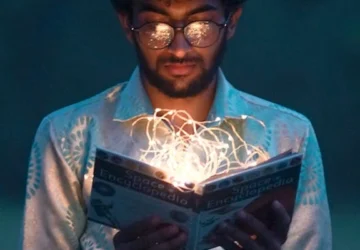
How Fiction Can Support Learning and Imagination
For centuries, a persistent myth has haunted our perception of reading. It is the myth of the “serious” versus the “frivolous.” In this binary, non-fiction is the “serious” stuff. It is the realm of facts, history, science, and learning. Fiction, on the other hand, is cast as the “frivolous” sibling. It is entertainment. It is […]

Does Reading Make You Smarter? The Science Behind the Habit
Does reading make you smarter? The simple, reflexive answer is “yes.” It’s a piece of received wisdom we’ve all internalized. We are told to “read more” in the same way we are told to “eat our vegetables.” We know it’s good for us, but the specific reasons remain abstract. What does “smarter” even mean? If […]

What Hobby to Start: Finding Joy in Your Free Time
You don’t need a makeover to feel more alive—you need a habit you look forward to. Two hours a week sketching city corners, a dawn loop around the park, or a Sunday bake that feeds three lunches can shift your mood, your energy, and your calendar. The question behind “What Hobby to Start: Finding Joy […]

What Is Prime Reading and How to Use It Effectively
We are living in the age of “access,” not “ownership.” This cultural shift has already transformed music (Spotify), film (Netflix), and television (Hulu). We no longer buy albums; we access a library. We no longer buy DVDs; we stream a catalog. Now, this model has come for our bookshelves. Amazon, the company that defined the […]
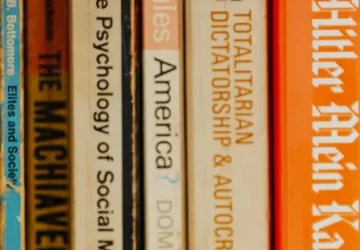
Must-Read Books on Politics and Society
Why does the world feel so chaotic? We watch the daily news and see a storm of seemingly random, disconnected events. A financial market crashes. A new law is passed. A war breaks out. A populist leader rises. A corporation makes a decision that affects millions. We treat these events as “news.” As discrete happenings. […]

Choosing Textbooks for First-Year Students
Becoming a first-year university student involves a series of new, confusing, and often expensive decisions. None is more immediate or frustrating than your first trip to the campus bookstore. You are handed a list of required texts for your five new classes, and the total at the bottom of the receipt could easily fund a […]
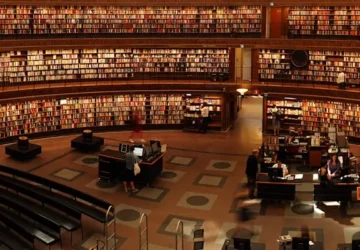
Books Every Student Should Read Before University
University is not just the next step after school. It is a fundamentally different kind of intellectual environment. High school often rewards memorization and acceptance of authority. University, at its best, rewards questioning. It is not just about learning what to think; it is about learning how to think. It is about engaging with complex, […]
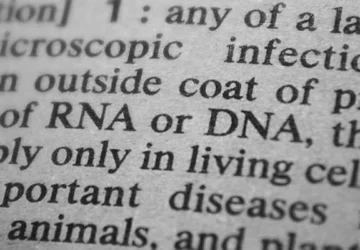
Molecular Biology and the Books That Defined It
What is life? For millennia, this question was the domain of priests, philosophers, and poets. It was a question of “spirit,” of a “vital spark,” of a “ghost in the machine.” Then, in the middle of the 20th century, a new group of thinkers took over. They were physicists, chemists, and biologists, and they approached […]